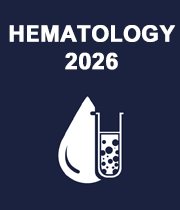Pediatric and Neonatal Hematology
Hematology/hematopathology in children includes benign, malignant, and neoplastic mimics. In the paediatric population, neonatal haematology is a complex and dynamic process. Hematologic concerns such as hemostasis, inflammation, and wound healing are regularly encountered by surgeons. Neonatal haematology is a popular and complicated paediatric haematology specialisation. Hematologic issues affect the majority of sick neonates, making neonatal haematology a rapidly growing area. From conception and implantation to organogenesis, a baby marks the culmination of developmental activities. To allow this growth and development, the embryo requires red cells to carry maternal oxygen. As the baby transitions to a separate biological existence, substantial changes in circulation and oxygenation occur, affecting haematopoiesis. Neonatal haematology is a complicated specialisation of paediatric haematology that takes into account the specific characteristics of the maternal/fetal relationship, the delicate balance of coagulation factors, and the particular physiologic conditions of the new-born period.
- Hematologic Disorders
- Alloimmune Cytopenias
- Polycythemia
- Thrombosis
- Bleeding Associated with Vitamin K Deficiency
- Pathophysiology
- Signs And Symptoms
- Current Treatment Strategies



Title : Acute intermittent porphyria: A neurological dilemma obscured by ubiquitous fgastrointestinal presentation
Mayank Anand Singh, Mimer Medical College, India
Title : Comprehensive symptom management and supportive nursing care in a preterm toddler undergoing HSCT for pyruvate kinase deficiency
Tran Thi Dung, Vinmec International Hospital, Vietnam